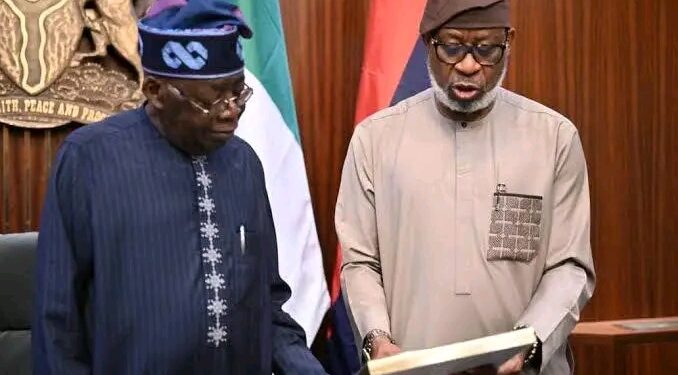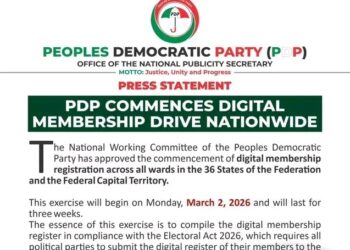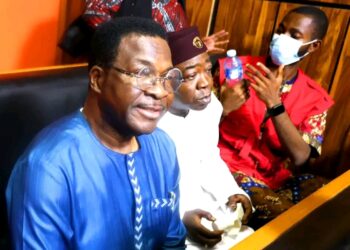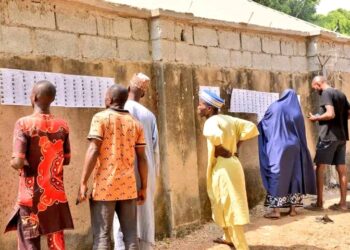Fresh insights into Nigeria’s solid minerals sector show an impressive surge in both foreign investment and government revenue under President Bola Tinubu’s administration.
The reforms, aimed at driving local value addition and stricter licensing practices, have begun to yield significant results, drawing over $800 million in project commitments in the past year alone.
This was revealed by the Minister of Solid Minerals Development, Dr. Dele Alake, during a feature interview for an upcoming State House documentary marking the president’s second year in office.
Dr. Alake explained that investor enthusiasm has grown due to key policy shifts introduced since the administration took office. He detailed major projects such as a $600 million lithium processing facility located near the Kaduna-Niger border, set for commissioning within the current quarter, as well as a $200 million lithium refinery near Abuja, now nearing completion, with two more plants scheduled to begin operations in Nasarawa before the third quarter of 2025.
“These developments were made possible because we now insist that mining licenses come with clear plans for local processing. The era of exporting raw minerals without adding value is behind us,” Alake stated.
He pointed out that the sector, which previously recorded just ₦6 billion annually, generated ₦38 billion in 2024 alone. This increase came despite the ministry receiving less than a fifth of its ₦29 billion allocated budget for the year.
Revenues have already begun to accumulate in 2025. Dr. Alake noted that in the first quarter alone, the Mining Cadastral Office recorded ₦6.9 billion, while the Mines Inspectorate brought in ₦7 billion.
The minister projected continued momentum for the year, with ₦1 trillion now earmarked for exploration activities intended to produce globally accepted geological data. He emphasized the importance of this shift, noting that Nigeria had previously invested just $2 million in exploration—far behind countries like Côte d’Ivoire and South Africa.
“No serious investor will commit resources without reliable data. That’s why we’ve made exploration a top priority,” he said.
Beyond financial growth, the minister said the reforms are also aimed at converting Nigeria’s mineral endowment into real economic value through job creation, technology transfer, and local manufacturing.
To tackle illegal mining, Alake said the government had taken firm action, leading to the arrest of over 300 individuals, with 150 cases now in court and nine convictions already secured, some involving foreign nationals.
“We deployed both enforcement and community engagement strategies. While the Mining Marshals have clamped down on illegal activity, we’re also helping informal miners transition into legal cooperatives,” he said.
According to him, over 250 such cooperatives have been formed nationwide, giving small-scale miners access to financing and a legitimate stake in the sector’s growth.
Nigeria now leads the newly established African Mineral Strategy Group, formed to advocate for better trade terms and local beneficiation across the continent. This development, Alake revealed, followed Nigeria’s strong stance at the 2024 Future Minerals Conference in Riyadh.
The minister shared that top officials from the United States, United Kingdom, Saudi Arabia, and the UAE have all expressed interest in participating in Nigeria’s lithium value chain.
“I was invited to Downing Street by the former British Deputy Prime Minister to explore opportunities in Nigerian lithium. The U.S. is looking for alternatives to China and sees Nigeria as a promising partner,” he said.
With streamlined regulations, growing investor confidence, and rising revenues, Dr. Alake believes the solid minerals sector has become a cornerstone in the administration’s broader economic strategy.
“We’ve rebuilt confidence in this sector. With credible data, strong enforcement, and clear policy direction, we are finally unlocking the true value of Nigeria’s mineral wealth for the benefit of our people,” he stated.
He added that the Mining Cadastral Office had received over 10,000 applications this quarter alone from both local and international investors, a signal of the sector’s growing appeal.
“This level of energy and structure in the sector was unimaginable before President Tinubu’s administration,” he said.
—Presidency





